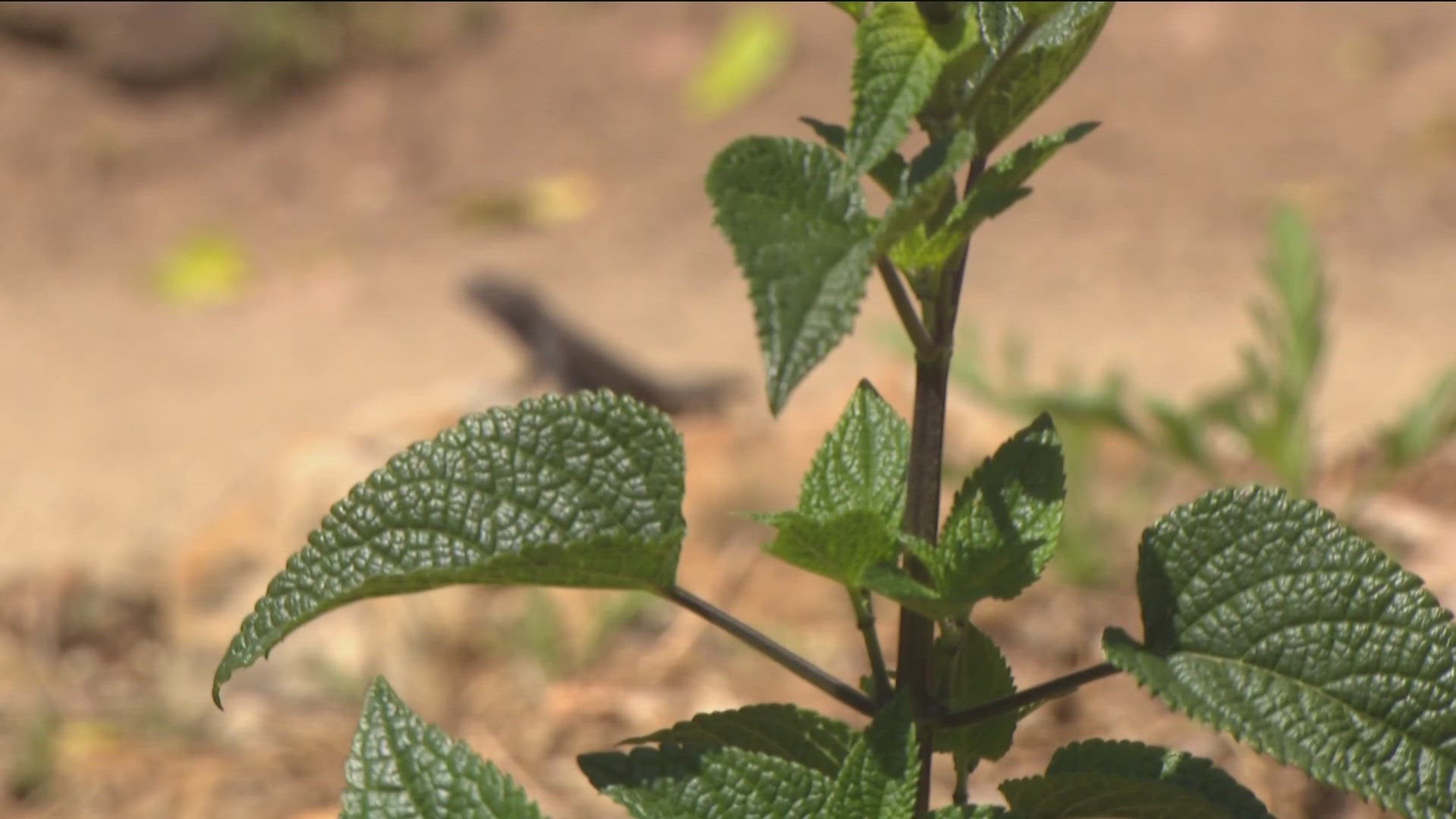SAN DIEGO — A recent study is signaling to scientists that controlling the growth direction of a plant's root could conserve crops and lead to ideal plants for fighting global warming. There is a particular hormone that is showing signs for this greener future.
Roots are the lifelines. They are an intricate system essential in the development of plants. Without a root system, land plants would cease to exist.
"They are really crucial to find all the important nutrients and the water in the soil that plants need to do all the fascinating things they do like making biomass, producing food, feed and fiber," said Wolfgang Busch, Ph.D., a professor at the Salk Institute for Biological Studies.
At the Salk Institute in La Jolla, scientists use Arabidopsis Thaliana, a typical lab plant, for their research. Several of them are on display in a gel that mimics the nutrients found in soil and shows root directions.
"If we change this ethylene pathway, a little bit, you know, like just single components at a time, we can change the root system drastically," explained Busch.
Researchers, including Busch, took thousands of chemicals and put them on plant roots. Some changed the direction of the root system. They found a particular chemical binds to a protein and is involved in a hormonal signal called the ethylene pathway.
"This mebendazole chemical basically leads to the activation of the ethylene signaling pathway and that then tells the roots, you don't grow downwards," explained Busch when talking about a recent observation.
Holding up a lab plant with a shallower, or a more horizontal, root system, Busch explained the chemical reaction from mebendazole correlates to a negatively regulated ethylene signaling. Scientists believe if there is a chemical that can cause plant roots to grow horizontally, there is a process that will make them grow vertically. That's why monitoring the hormone, ethylene, is important.
Busch broke down how we are familiar with this hormone in a particular fruit.
"You might know it; everyone might know it. When you actually have a banana and it's still green and you put it in a bag, a paper bag with the apple, then it gets ripe. And the reason for this is because the apple emits ethylene and the ethylene, which is a gas gets to the banana and tells the banana, well you better ripen up. And so ethylene is very important for many plant processes, not only ripening, but also now we discovered it is important for determining whether a plant has shallow roots or deeper roots," explained Busch.
Researchers are focusing on manipulating the root system to make them more steep and deeper. Deep roots allow more access to water in soil, which is beneficial during drought periods. Deeper roots are also better for storing carbon from the atmosphere through the natural process of photosynthesis. It is stored in the roots and creates biomass. The carbon seeps into the soil and stays there longer. Therefore, it reduces carbon in the atmosphere that causes global warming.
"So by having deeper roots, plants will help us to mitigate the climate crisis," said Busch.
Studies like this one are also helping Salk Institute researchers as they continue to work on the concept of "Salk Ideal Plants." These would be a variety of plants with deep roots, abundant roots, that continue to provide the benefits we get from plants like food by saving crops and also help lessen the impacts of climate change.
"And then we take what we've learned and put it into crop species with the hope that we will get Salk Ideal Plant crop varieties that can be rolled out to farmers. So that the farmers can also have plants that provide this carbon sequestration and ability so we can fight climate change," stated Busch.
It's research rooted in a healthy and greener future.
WATCH RELATED: Inside San Diego's medicinal plant garden (April 15, 2024)

